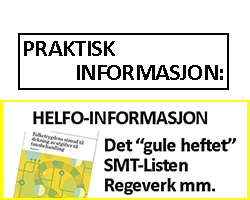A study led by Dr. Bing Hu at Plymouth University Peninsula Schools of Medicine and Dentistry and involving other researchers from China and Switzerland, suggests for the first time that the use of local anaesthetic may affect tooth cell growth and the development of children’s teeth.
The study is published in Cell Death Discovery, a new translational medical research journal from Nature Publishing Group, and comes at a time when more children than ever before are subjected to dental surgery — and local anaesthetic — because of tooth decay or the other orthodontic conditions.
Using pig teeth and human young permanent tooth pulp cells, the research has identified that local anaesthetics commonly used in clinics can affect the proliferation of tooth cells. It is the first time that evidence has been found to suggest that local anaesthetic could affect tooth cell growth and potentially impact upon tooth development.
According to the research team, dental treatment involves more frequent use of local anaesthetic than any other clinical area. Although the maximum dosage of various local anaesthetics is established, their side effects on dental tissue have until now not been fully investigated.
The study found that the longer duration of exposure to high concentrations of local anaesthetic was most harmful because it interferes with the function of mitochondria, the ‘batteries’ of the cell, and induce a cell death mechanism named “autophagy.” The research team investigated the majority kind of local anaesthetics currently used in dental clinics in the UK, Switzerland and China.
While the study has identified a potential harmful effect of local anaesthetic on developing teeth, the research team is keen to emphasise that further clinical studies are required before there is enough data to change clinical guidelines, and that parents should not be alarmed or withdraw their children from treatment if they need it.
The study was led by Dr. Bing Hu, Associate Professor in Oral and Dental Health Research at Plymouth University Peninsula Schools of Medicine and Dentistry.
He said: “Our study has shown for the first time the evidence that local anaesthetic may affect the development of children’s teeth in cellular and molecular levels. We accept that we need to carry out further clinical studies and we do not wish for our findings to alarm parents unnecessarily, but we do expect, in time, to improve clinical guidelines through our research to minimise the dosage of local anaesthetic drugs.”
He added: “Our findings emphasise the need for parents to help their children to avoid the need for dental surgery, such as tooth extractions, in the first place by paying attention to diet and good oral hygiene, and regular visits to the dentist.”
Story Source:
The above post is reprinted from materials provided by University of Plymouth. Note: Materials may be edited for content and length.
Journal Reference:
- Bing Hu et al. Local anaesthetics induce autophagy in young permanent tooth pulp cells. Cell Death Discovery, September 2015 DOI: 10.1038/cddiscovery.2015.24



Leave a Reply